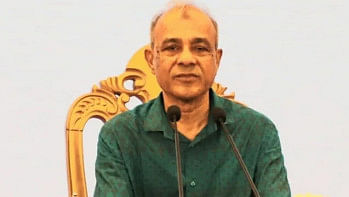EU trade benefits may continue even after LDC graduation

Bangladesh may continue to enjoy duty-free trade benefits in the European Union for a few more years even after its graduation from the group of least developed countries (LDCs) as the pandemic fallouts have ravaged the economy, government officials said.
"We will hold a virtual meeting with the EU trade officials on October 12 to place our demand for an extension of the trade benefits as both the economy and employment have been severely affected by the ongoing pandemic," said Md Jafar Uddin, commerce secretary.
The EU is set to review its duty-free facilities under the Everything But Arms (EBA) agreementin November. Under the EBA, all imports to the EU from the LDC are duty- and quota-free, with the exception of armaments.
In the meeting, the secretary will lead the Bangladesh delegation, featuring various secretaries from the labour and foreign ministries and two other government bodies that he could not immediately mention.
LDCs, such as Bangladesh, which are set to graduate within the next few years are demanding their developing and developed counterparts to extend the duty-free benefits for preferably the next five years as most economies have been badly affected by this unprecedented global crisis.
At the meeting, Bangladesh will mainly raise the issue of continuing the EU's Generalised System of Preferences (GSP) facility, Uddin said.
Officials of other countries with also make the same demand as their economies have also been affected by Covid-29, the commerce secretary added.
Another facility that could been extended is the duty-free benefit for LDCs outlined by the World Trade Organisation (WTO).
On behalf of all LDCs, the African nation of Chad already submitted a proposal to the WTO last month, seeking an extension of the GSP facilities on exports to developed and developing countries for a few years.
Bangladesh is a major player in the LDC group under the WTO initiative.
"I hope the WTO initiative will be successful because it is a step that was taken collectively by all LDCs," Uddin said.
Earlier, Bangladesh joined hands with its peer LDCs to appeal to the WTO for a continuation of the trade benefits they currently enjoy following graduation to developing nations considering the pandemic's ill-effect on economies.
Noting Bangladesh's economic development record, the UN Committee for Development Policy (UN CDP) is scheduled to complete the final round of assessment for the country's graduation in 2021.
If the UN CDP finds the assessment positive, Bangladesh will graduate to the status of a developing country in 2024.
Once the country graduates, all tariff benefits will be lifted. Only the European Union (EU) will allow tariff benefits for Bangladesh for another three years as a grace period.
That means Bangladesh will enjoy the zero-duty benefit to the EU up to 2027 but for other countries, the tariff benefits will be withdrawn from 2024.
As an LDC, Bangladesh currently enjoys zero-duty tariff benefits, preferential trade benefits and regional trade benefits on exports to 38 countries, 28 of which are within the EU.
The other 10 are: Australia, Belarus, Canada, Liechtenstein, Japan, New Zealand, Norway, Russia, Switzerland and Turkey.
In many other countries such as Chile, Brazil and those in Latin America, Bangladesh enjoys a significant reduction in duty rates.
Also, in the US, Bangladesh enjoys zero-duty benefit on 97 per cent of its products but unfortunately, the package excludes some major export items like garments.
As a result, Bangladeshi exporters have to face a 15.6 per cent duty on apparel shipments to US markets. Nevertheless, the US is the single largest export destination for Bangladesh.
Bangladesh will face competition in Europe after graduation as Vietnam has already signed a free trade agreement (FTA) with the EU. Some 74 per cent of Bangladesh's export earnings come under the preferential trade as an LDC.
Of this, 64 per cent comes from the EU and 10 per cent from Japan, Canada and the other developed countries.
Bangladesh's export will decline 5.7 per cent annually if the EU's EBA initiative is not extended as local exporters will then have to face an 8.7 per cent duty on exports to the EU.
So, there is a possibility of losing more than $2 billion worth of export business annually after graduation, according to the United Nations Industrial Development Organisation.
In early April, WTO economists projected a steep fall in trade in 2020, with the main question being the sheer depth of the decline.
The economic dislocation threatens to reverse hard-won socioeconomic development gains in the LDCs and could potentially delay graduation for some countries.
Economists argue that primarily, all the LDCs should demand deferment of the graduation by at least three years as the global economy is severely affected by the pandemic.
If deferment is possible, it will be better. If not, all the developing and developed countries, including those within the EU, should continue the same trade benefits at least for five years past the graduation.

 For all latest news, follow The Daily Star's Google News channel.
For all latest news, follow The Daily Star's Google News channel. 



Comments